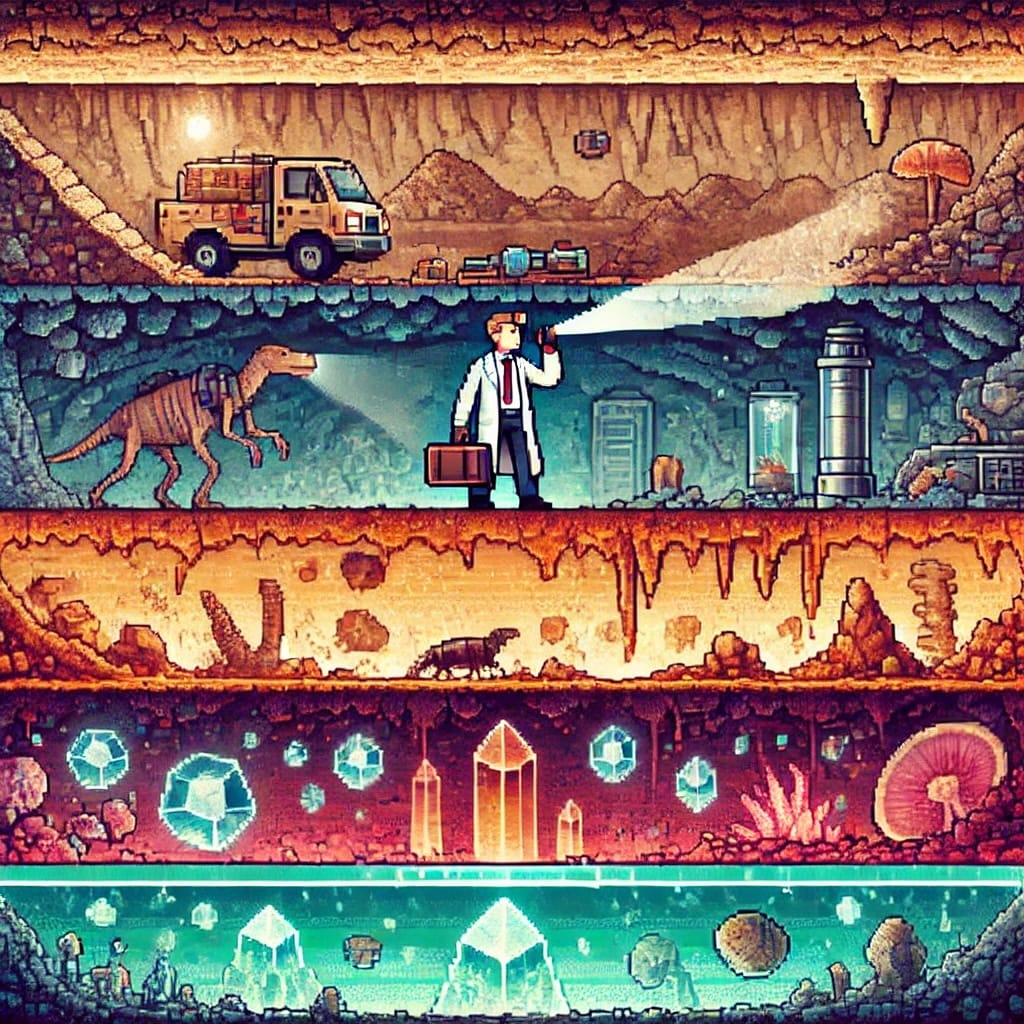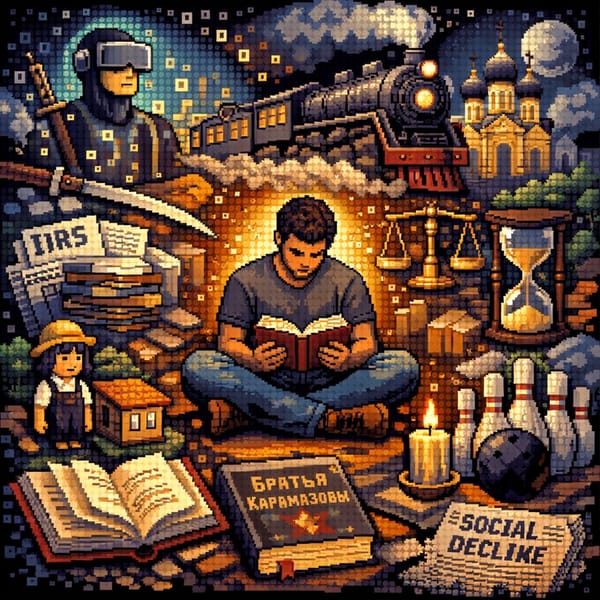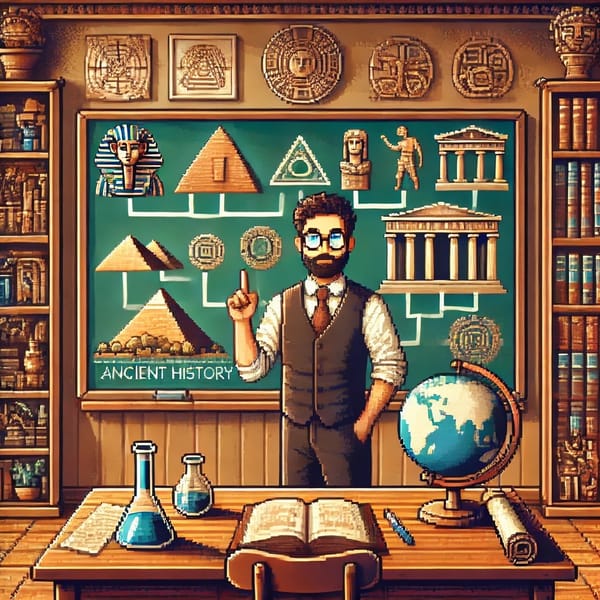Hidden Complexity

We tend to oversimplify. We want a straightforward story, cause, and effect with a few ingredients that align with our worldview. These stories can be helpful but may not have the full context or truth. Importantly, without these simplifications, we wouldn't survive. Getting out of the house in the morning would be a struggle if you had to understand exactly how your plumbing, HVAC, coffee maker, etc., all work. We must get past a simple understanding and accept the world's complexity. I see this tendency toward oversimplification most in science, trying to understand nature, and in ideas.
Science
Carlo Rovelli says that science progresses by diagnosing errors in the current model. Whatever model is currently believed probably works pretty well, or else people would have thought a bit harder about it, but that doesn't mean there isn't room to improve its fit to nature’s natural curves.
A good example of this would be Einstein. He learned about Newtonian physics at a young age but couldn't shake some inconsistencies between the theory and the world. Einstein spent years on the problem, struggling to see how the physics of light and what we experience daily could be related. Eventually, he developed the theory of simple relativity and, later, general relativity. Newtonian physics came to be seen as an approximation of general relativity under certain conditions, which we experience daily. Newtonian physics dominated our model of the world for over 200 years before anyone raised questions because it worked pretty well under our circumstances, but it wasn't perfect.
We can understand the basics of things pretty well, but there is always more to be discovered, particularly in nature. Nat Eliason wrote a great piece recently pointing out the difference between a map and a blueprint. A blueprint is something we create, is limited to our imagination, and we can fully understand how other pieces work together. A map is us trying to simplify and map a field with nearly infinite detail. Thinking about biological processes, we gradually mapped more and more of plant biology until we understood enough about plants to give them the primary nutrients they need with fertilizer artificially. We don't know everything there is to know about plants, but we know enough to take some action. Messing around with blueprints is easy because we fully understand the cause and effect, but leveraging our current map of the natural world can be dangerous. Fertilizer here is a good example since while it makes plants grow more abundantly, it degrades the soil, contaminates the groundwater, and disrupts the natural ecosystem where it is used. History is littered with scientific "progress" that had unintended consequences because we didn't fully understand what we were doing.
Ideas
Similar to not fully understanding nature, but on a more positive note, I think the same can be said for other people's ideas. Ideas are complex and very specific to the person. To quote David Brooks, "People don't see the world with their eyes; they see it with their entire life." If I had a great idea for something I wanted to write, it would take me writing it to communicate it effectively enough for someone else to do it just as I imagined.
This is why fully copying people is impossible, in both good ways and bad. On the good side, if you pursue an artistic endeavor and wish to emulate someone else's style, you will never do so perfectly. You will gradually develop your voice by trying to channel other people into your work. On the bad side, if you are only trying to copy someone, such as a competitor in business, you will always be one step behind. You don't know why they are making the decisions they are making and don't have the logical process, so you are always stuck a few steps behind. In Kipling's poem Mary Gloster, which is about a man who has run a successful shipping business reflecting on his life and work, he captures it well:
They copied all they could follow, but they couldn't copy my mind,
And I left 'em sweating and stealing a year and a half behind.
Similarly, I have heard people complain about almost every nonfiction book I have read: "I feel like they covered the gist in the first few chapters, then repeated themselves for 250 pages."[1] The implication is usually that their idea is simple, so to sell a book, they just needed to repeat it many times; that way, it would be big enough. This may be true sometimes, but I would argue it is rare.
The seed of an author's idea should be simple. It should provide you with something easy to take away from the book. The rest of the book can be examples of that simple principle in action. Repetition helps hammer the idea home into your brain. It gives you many examples of the concept in action, providing real-world connections to help you use and remember the idea in the future.
It is similar to an iceberg. What a businessperson's actions, a piece of art, or a book summary communicate may only be a fraction of the thought process. You can't ever know the entire story.
Conclusion
Simplifying isn’t always a bad thing. In many scenarios, it is good, such as Newtonian physics, which enabled 200 years of progress before we hit the next barrier. We need to remember the world is always more complex than our mental model of the world[2]. We will never understand these complex systems, but we should recognize they are there. As Donella Meadows, a professor and author of Thinking in Systems[3], advises, since we can't control or figure out complex systems, we must dance with them. Embrace the complexity and resist the urge to oversimplify when things are necessarily complex.
- I have heard this about Range specifically multiple times. Based on how often I reference it, you probably realize I enjoyed it, and the examples in those later chapters resonated.
- This idea ties into many of the ideas from Seeming Slack two weeks ago. We think we have a firm grasp on productivity, but we are often just doing things that make us feel busy. We use the feeling of busyness as a proxy for productivity, but that is frequently (always?) wrong.
- I would estimate this is among the top five books I think about the most. It is relatively short. If you haven’t read it, you should.



